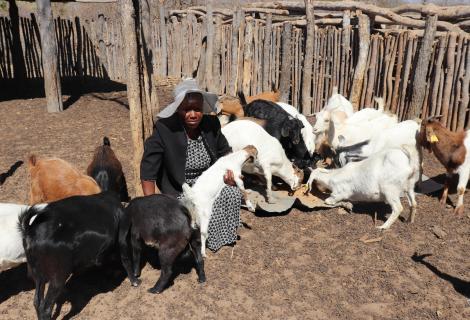Goat Producers Business Associations to drive commercial efforts of small and medium holder farmers

Streams of sweat poured off her brow, the heat unrelenting and true to form during this time of the year in Matebeleland North’s Lupane district. Her name is Lizzy Mwinde, she is clearly unbothered by the incessant heat, her attention is on feeding and caring for her bulging head of goats comprising of indigenous and exotic breeds - the boer goats.
Although this area is well known for goat production, Lizzy’s passion and dedication to her goats is clearly evident in her comparatively excellent structures and impressive state of her goats. As she speaks about her project, her posture changes and her face glows, “I have a passion for goats, when I started it was difficult to convince people that goats had the potential to generate income that can sustain a family. This is so because most people consider goats as a poor man’s cow that is unable to create meaningful income.”
With a 17 doe-unit, Lizzy was selected to be one of the 1000 anchor farmers in the 12 districts where the goat value chain is being implemented. The anchor farmers will be trained to cascade support to an approximate 9000 small and medium holder farmers.
Operations of small and medium scale farmers have been impeded by a number of challenges that the project seeks to address.
“Some of the challenges we have been facing as goat farmers include accessing viable markets, lack of superior breeds, lack of coordination of small and medium scale farmers and lack of access to agro-financing,” added Lizzy.
Lizzy said that she was attracted to the project after learning of how the VALUE project sought to promote collective action by organising farmers into Goat Producers Business Associations (GPBAs). The GPBAs will drive the commercialisation efforts of the goat farmers in the various districts through the Goat Improvement Centres which the project will establish.
She added that the establishment of Goat Improvement Centres and the promotion of collective action was timely and appropriate to commercialise while addressing challenges that have bedevilled the goat farmers over a prolonged period. Farmers like Lizzy can apply for Smart Subsidies under the project to upscale their production through breed improvement and infrastructure development.